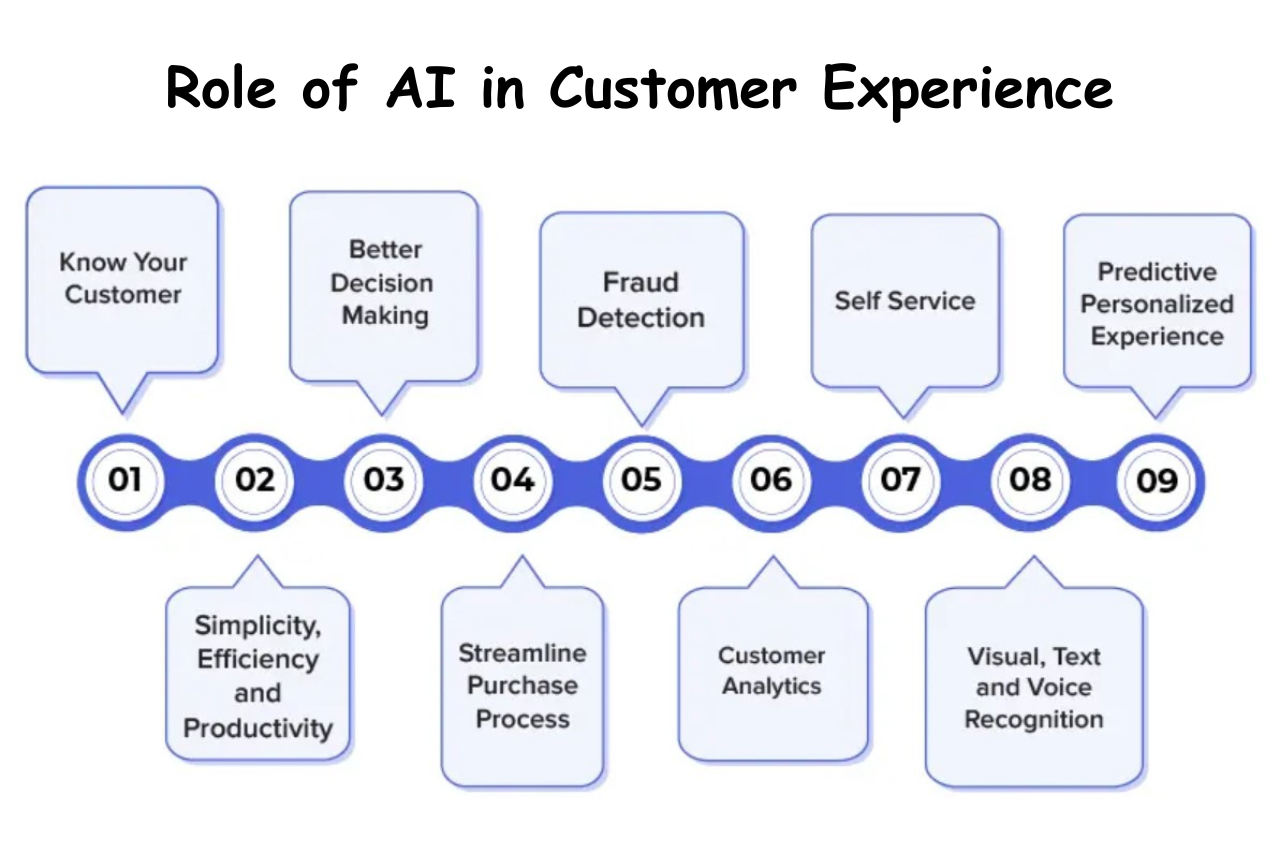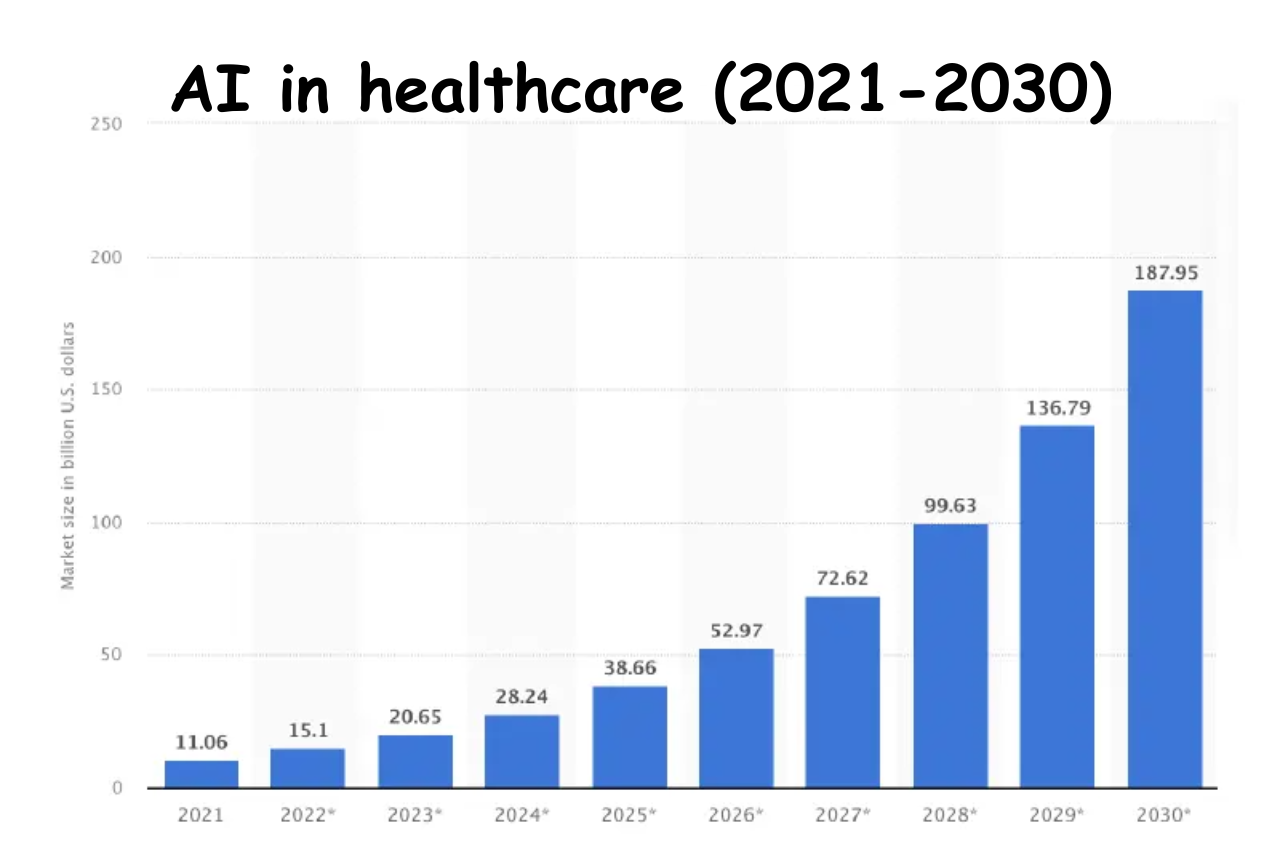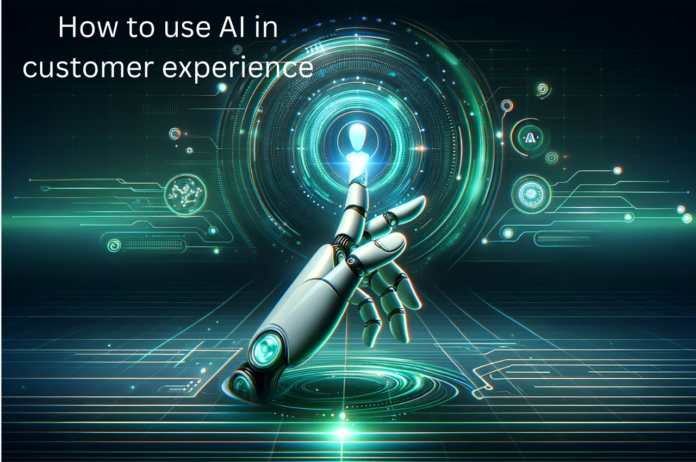In recent years, artificial intelligence (AI) has moved beyond science fiction. The discussion around AI in customer experience has gained momentum ever since the launch of OpenAI’s ChatGPT in November 2022. AI offers a wide range of applications in various industries, improving user experience and fostering innovation.
Thank you for reading this post, don't forget to subscribe!The popularity of customer service chatbots and virtual assistants like Siri and Alexa has been on the rise. What makes these generative AI solutions exciting is their potential to offer personalized services, marketing, and customer experiences.
This is why businesses are increasingly focusing on personalization as a key marketing strategy. Companies such as Home Depot, Starbucks, JPMorgan Chase, and Nike have emphasized the importance of personalized customer experiences in their overall enterprise strategy.
AI-powered customer service has the power to revolutionize business operations and create significant value for users, leading to a cycle of improved service, higher engagement, and increased satisfaction.
It comes as no surprise that AI is reshaping businesses across different sectors by providing real-time, high-quality content. According to a report by Accenture, AI has the potential to boost corporate profitability by 38% by 2035. In today’s article we will know, how to use AI in customer experience? So let’s begin-
What is AI in Customer Experience?
AI in customer experience greatly helps in enhancing customer experience, improving customer interaction, optimizing business processes. This approach encompasses a wide range of technologies, including machine learning algorithms, natural language processing (NLP), predictive analytics, and robotic process automation.
By analyzing vast amounts of customer data, such as browsing habits, purchase history, and social media activity, AI enables businesses to provide highly personalized experiences. This deep analysis allows companies to understand individual customer preferences and tailor their recommendations and interactions accordingly, meeting their specific needs and preferences.
Why Should Businesses Focus on Customer Experience?
Given the growing awareness of the distinction between User Experience and Customer Experience, the latter has emerged as a crucial factor in unlocking unprecedented opportunities within the business market. In order to provide a personalized experience, it is now imperative to comprehend your customers and devise a marketing strategy accordingly. Consequently, the integration of AI into customer experience has become essential for achieving greater success in the marketplace.
This assertion is further supported by the following statistics:
Having examined the significance of prioritizing customer experience, let us now delve into the role of AI in this domain. What advantages does AI offer in terms of customer experience management strategy?
Role of AI in Customer Experience
AI has reached a stage where it can assist businesses in comprehending, reshaping, customizing, and enhancing their processes. To illustrate the significant impact of Artificial Intelligence on customer experience, below are several examples of AI applications in customer experience. This compilation of scenarios will provide insight into the current capabilities of AI in customer experience and its potential future applications. 
Know Your Customer
Utilizing AI to enhance customer experience strategy is crucial due to its ability to provide a wealth of real-time user data. AI-powered tools like NLP (Natural Language Processing) allow for the collection and analysis of user data in real-time, allowing businesses to stay informed about shifts in customer behavior and expectations.
Simplicity, Efficiency, and Productivity
AI-enabled customer experience offers several benefits to businesses. One of the key advantages is the added simplicity, efficiency, and productivity it brings to business processes. By utilizing technologies such as Chatbots and self-driving software, AI automates repetitive tasks, reducing the time and effort required for their completion.
Read More: Implement AI and Automation in Your Business
Furthermore, by collecting and analyzing data in real-time, AI in Customer Experience allows businesses to understand customer preferences and tailor their offerings accordingly. This enables businesses to introduce features and concepts that align with customer desires and interact with them in a way that suits their preferences.
In addition, the integration of AI in quality assurance facilitates the design of innovative mobile applications with improved efficiency and a user-friendly structure. AI-powered bots and platforms take care of routine tasks, freeing up the workforce to focus on more productive and strategic activities.
Overall, relying on AI-enabled customer experience not only streamlines business processes but also enhances customer satisfaction and drives business growth.
Better Decision Making
Artificial Intelligence serves as a valuable ally for businesses when it comes to making decisions. AI in customer experience, by analyzing user interaction data and staying updated on market trends, this technology enables businesses to predict future outcomes. This, in turn, helps them determine which features or functionalities to incorporate into their solutions to achieve significant success in the market.
Streamline Purchase Process
Currently, many customers encounter issues such as slow loading and complex checkout processes, leading them to abandon their carts. Artificial Intelligence plays a crucial role in understanding these challenges and enhancing the shopping experience, ultimately reducing app cart abandonment rates for businesses.
Fraud Detection
Artificial Intelligence is widely utilized across various sectors like finance, healthcare, and retail to improve customer experience, particularly in fraud detection. By leveraging real-time data analysis capabilities, AI can effectively monitor user behavior and promptly identify any suspicious activities, enabling proactive fraud prevention measures to be implemented.
Customer Analytics
Artificial Intelligence plays a crucial role in customer data analytics, showcasing its remarkable importance. AI-powered customer experience solutions and platforms streamline the collection of vast amounts of user data from various sources and organize them efficiently based on key factors.
Moreover, Artificial Intelligence enables the prediction of user interactions’ context and the development of enhanced customer engagement strategies. This is achieved by harnessing the appropriate use cases of the technology and leveraging valuable data insights.
Self-Service
Artificial Intelligence is essential in understanding customer behavior and preferences, enabling businesses to anticipate their needs and provide proactive support. By leveraging AI, companies can offer self-service options and personalized FAQs, empowering customers to resolve issues independently. This shift towards autonomous problem-solving is driving the demand for AI in enhancing customer experience.
Visual, Text, and Voice engagement
AI-driven platforms offer the chance to enhance the customer experience for specific audiences by analyzing their voice or facial expressions. By utilizing facial recognition and virtual assistants, these platforms can accurately gauge users’ emotions and sentiments in real-time. This enables businesses to promptly respond with tailored offers, refunds, or other positive actions, ultimately leading to long-term profitability.
Predictive Personalized Experience
In addition, AI in customer experience plays an important role in enhancing the overall customer experience. By leveraging AI, businesses can analyze user interaction history and accurately predict their future actions. This valuable insight enables businesses to offer personalized marketing offers, resulting in increased customer engagement and higher profits. According to a report from McKinsey, successful personalization can lead to a 20% boost in customer satisfaction, 20-30% improvement in employee engagement, and 10-15% increase in sales conversion rates. Looking ahead to 2024 and beyond, it is evident that AI will continue to play a vital role in shaping customer experience across various industries.
Different Industries Leveraging AI in Customer Experience
Are you seeking real-world AI customer experience illustrations? Look no further; here are examples of various industries and top companies utilizing AI-driven customer experience to improve their service, marketing, and growth strategies.
Retail
Retail is one of the industries that is being transformed by AI. By utilizing transactional data and machine learning, businesses are able to track and analyze customer behavior and purchase history. This enables them to determine the most effective promotional offers and messages to capture customers’ attention and increase their return on investment.
The impact of AI in retail is evident in a survey conducted by Capgemini, which found that the technology could save retailers approximately $340 billion annually. The survey also revealed that the use of AI in improving the customer experience resulted in a 9.4% increase in customer satisfaction and a 5.0% decrease in user churn rate.
Read More: AI in Automation – What You Need to Know
Brands like Nike are focusing on leveraging AI to enhance the customer experience. For example, Nike acquired Celect, a company that specializes in predicting users’ shopping behavior. Additionally, Amazon’s AI-powered virtual assistant, Alexa, is revolutionizing the way customers interact with their devices and make important decisions.
Healthcare
 AI is revolutionizing the healthcare sector by prioritizing customer experience. It acts as the central nervous system of the healthcare user experience ecosystem, streamlining the analysis of patient health records and recommending medical interventions with higher success rates. Additionally, AI enables healthcare organizations to offer top-notch support through Virtual Nursing assistants, ensuring patients receive timely medication reminders and share real-time health updates with their healthcare providers. As a result, the AI healthcare market is projected to reach a value of approximately $188 billion by 2030, with a compound annual growth rate (CAGR) of 37% from 2022 to 2030.
AI is revolutionizing the healthcare sector by prioritizing customer experience. It acts as the central nervous system of the healthcare user experience ecosystem, streamlining the analysis of patient health records and recommending medical interventions with higher success rates. Additionally, AI enables healthcare organizations to offer top-notch support through Virtual Nursing assistants, ensuring patients receive timely medication reminders and share real-time health updates with their healthcare providers. As a result, the AI healthcare market is projected to reach a value of approximately $188 billion by 2030, with a compound annual growth rate (CAGR) of 37% from 2022 to 2030.
Mobile Banking and Finance
Artificial Intelligence is revolutionizing the user experience in mobile banking and finance applications as well. Through the implementation of Chatbots, this technology offers round-the-clock assistance to users, aiding them in selecting the most suitable financial plan for their needs. Moreover, it effectively identifies and mitigates the risk of fraudulent activities, leading to enhanced customer engagement and improved retention rates.
A prime example of this is PayPal, which harnesses the power of AI to analyze transaction patterns, detect fraudulent activities, and safeguard customers against potential security breaches.
Entertainment
AI and its subset, ML, have revolutionized the customer experience across industries, including the entertainment sector. Netflix stands as a prime example of how AI has enabled the delivery of personalized experiences. By analyzing user behavior, needs, and expectations, Netflix presents tailored options on the screen, enhancing customer satisfaction. This not only improves customer retention but also fosters loyalty, ultimately leading to increased profitability.
As we witness the transformative impact of AI on customer experience, it raises the question of whether these trends will persist in the future. Will AI continue to play a crucial role in shaping customer experiences in the years to come? The answer lies in the potential of AI to adapt and evolve, ensuring that it remains an integral part of the customer experience landscape.
Future of AI in Customer Experience
The AI industry has experienced tremendous growth in recent years. More than 1,500 companies, such as Microsoft, Google, IBM, and Amazon, have dedicated their resources to creating cutting-edge applications that enhance customer satisfaction. Furthermore, numerous other companies are anticipated to jump on the bandwagon in the near future, aiming to enhance efficiency and minimize expenses.
Hope you got some benefit from today’s article on “How to Use AI in Customer Experience”. Share the post more with us to get valuable articles regularly. Technocommy is a connecting space, the leading growth and networking organization for business owners and leaders. Do I qualify?


